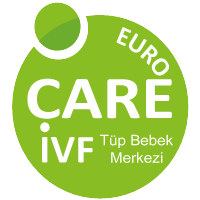The top fertility clinic in Cyprus, euroCARE IVF, creates loving families by providing advanced fertility services to intended parents who are struggling with infertility. By implementing modernized treatments such as, in-Vitro Fertilization (IVF), donor programs, and fertility research, we help future moms and dads hold on to their dreams of parenthood.
 Blastocyst transfer in North Cyprus is offered as an alternative treatment to couples who have failed attempts with IVF or ICSI. Couples with multiple good-quality embryos on day 3 are also ideal candidates for blastocyst transfer.
Blastocyst transfer in North Cyprus is offered as an alternative treatment to couples who have failed attempts with IVF or ICSI. Couples with multiple good-quality embryos on day 3 are also ideal candidates for blastocyst transfer.
The blastocyst stage is an advanced stage of the embryogenesis in which the embryo moves out from the fallopian tube into the womb. Just before hatching, the embryo becomes blastocyst. Once in the uterus, the blastocyst starts to implant into the uterine lining. This process is known as implantation.
What make blastocyst embryos so special is that they have passed the “survival” test. During the first few days, the embryo relies on the mother’s egg for nutrients and developmental instructions.
After the third day, the embryo starts relying on its own genes. Only about one-third to one-half of the embryos become blastocysts. Another advantage of blastocyst embryos is that they minimise the risk of a multiple pregnancy.
What is Blastocyst Transfer?
A blastocyst results from an egg that has been fertilized, grown, and developed in the IVF Lab for 5 to 6 days. During your In Vitro Fertilization (IVF) treatment in Cyprus, the blastocyst process occurs in an Embryology Lab with the help of ICSI.
The main difference with conventional IVF is that embryos in the latter are usually transferred on the second or third day after egg retrieval. The blastocyst embryos reach an advanced stage of development (100-150 cells) before they are implanted into the uterine wall (endometrium).
Many embryos don’t survive the blastocyst stage due to some inherent problem. The ones who do, have greater ability to implant into the uterine wall and establish a pregnancy. Moreover, blastocyst embryos can easily adapt to the uterine environment because their development is similar to the one in natural cycles.
The potential improvement in fertility that this type of treatment may yield depends on the woman’s age, diagnosis and partner’s initial semen analysis, and should be discussed with your specialist.
Growing embryos to the blastocyst stage allows our euroCARE IVF team to determine which embryos will be viable for continued development, allowing us to select the best embryo to transfer.
Embryonic division progresses from one cell to two, four, eight, sixteen cells, etc., until several hundred cells have developed. The highly differentiated embryos spontaneously escape from the shell at the blastocyst stage — prior to implantation.
This innovative assisted reproductive technique has been incorporated with our IVF treatment to increase pregnancy rates while simultaneously decreasing the risk of multiple pregnancies.
Blastocyst Development
Blastocyst embryo transfer is a special In Vitro Fertilisation (IVF) technique in which an embryo that has reached an advanced stage of development, also known as blastocyst stage, is transferred into the uterus. After collecting eggs from the ovaries, they go through fertilization with IVF or ICSI.
These are the stages of embryo development:
- Pronuclear stage (fertilized egg)
- Two- to four-cell stage on the second day
- Eight-cell stage on the third day
- Morula stage on the fourth day and
- Blastocyst stage on the fifth day
Is blastocyst transfer for me?
Our goal at euroCARE IVF is to provide a high level of technical expertise to help you reach parenthood.
We offer blastocyst transfer to improve your chances of a successful pregnancy and to reduce the risk of multiple births. It is especially beneficial for younger women who have a higher chance of a successful result or for those couples who wish to have no more than one embryo transferred.
Not all embryos will develop to produce blastocysts in the laboratory. Some embryos can stop developing on day 2 (4 cell stage) and progress no further. A blastocyst transfer is not normally recommended if you produce only a few eggs or fewer good quality eggs.
In this instance, our team may advise to you that the embryos are returned to their natural incubator — the womb — on day 3 of their development rather than risk having no embryos to transfer on day 5.
Our expert euroCARE fertility doctors will discuss with you in detail your embryos development as your treatment progresses and advise you on the best stage to schedule the embryo transfer.Resources:
https://www.cityfertility.com.au/fertility-services/ivf-treatment/blastocyst-stage-extended-culture/
